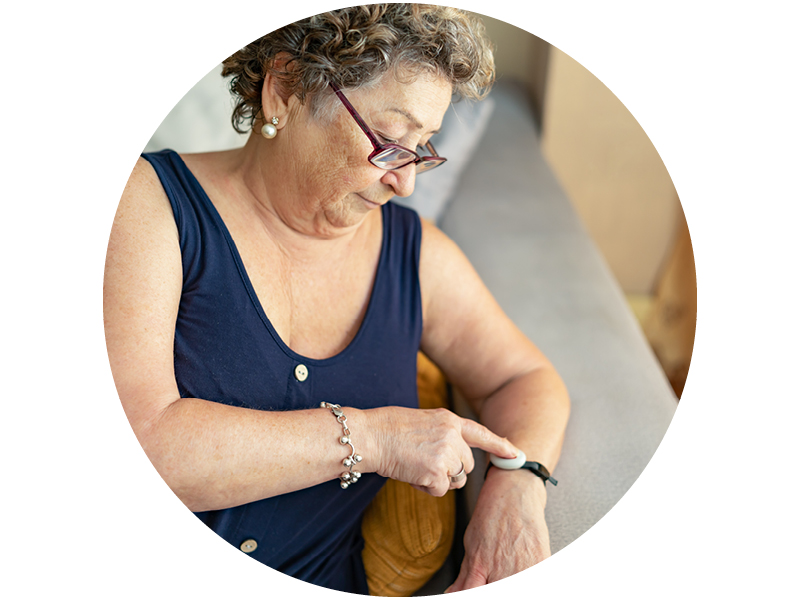
What are Medical Alert Systems?
Medical alert systems are devices that allow individuals to quickly and easily call for help in case of an emergency. These systems typically consist of a small, wearable device, such as a bracelet or pendant, that the user can press to send a signal for help. The signal is typically sent to a central monitoring station, which can then dispatch emergency services, such as an ambulance, to the user’s location. Medical alert systems are often used by elderly or disabled individuals who may need assistance in case of a fall or other emergency, but they can be used by anyone who wants to have a way to call for help in case of an emergency.
What are the benefits of using a Medical Alert System?
There are several benefits to using a medical alert system:
Quick access to help: With a medical alert system, you can quickly and easily call for help in case of an emergency, even if you are unable to get to a phone or reach a phone. This is especially important if you are alone or have mobility issues.
Peace of mind: Knowing that you have a way to call for help can give you peace of mind and make you feel more secure.
Independence: Medical alert systems can allow you to maintain your independence, even if you have mobility or health issues. You can continue to live on your own, with the added security of being able to call for help if you need it.
Quick response: Medical alert systems can help ensure that you get the help you need as quickly as possible, which can be critical in an emergency.
Cost-effective: Medical alert systems can be more cost-effective than having someone come to your home to check on you or having to move to an assisted living facility.
How much do Medical Alert Systems cost?
Medical alert systems can vary in price depending on the features and services included. Some basic systems can cost as little as $20 per month, while more comprehensive systems with additional features and services can cost $50 or more per month. It is also possible to purchase medical alert systems outright, with prices ranging from around $100 to $400 or more. It’s a good idea to shop around and compare prices and features to find the system that best meets your needs and budget. It’s also a good idea to check with your insurance company, as some policies may cover the cost of a medical alert system.
How do I choose the best Medical Alert System?
There are a few things you should consider when choosing a medical alert system:
Type of system: There are several types of medical alert systems available, including landline systems, cellular systems, and GPS systems. Consider your personal needs and lifestyle to determine which type of system is best for you.
Range: If you live in a large home, you’ll want to choose a system with a long range so you can use it throughout the house.
Ease of use: Look for a system with buttons that are easy to press and a clear speaker so you can communicate with the monitoring center.
Response time: Choose a system with a fast response time so you can get help as soon as possible in an emergency.
Cost: Compare the costs of different systems, including any monthly fees, to find the most affordable option.
Reputation: Read reviews and do some research to find a reputable company with a good track record.
Additional features: Some systems offer additional features such as fall detection, medication reminders, and two-way voice communication. Consider which features are most important to you and choose a system that offers them.
















